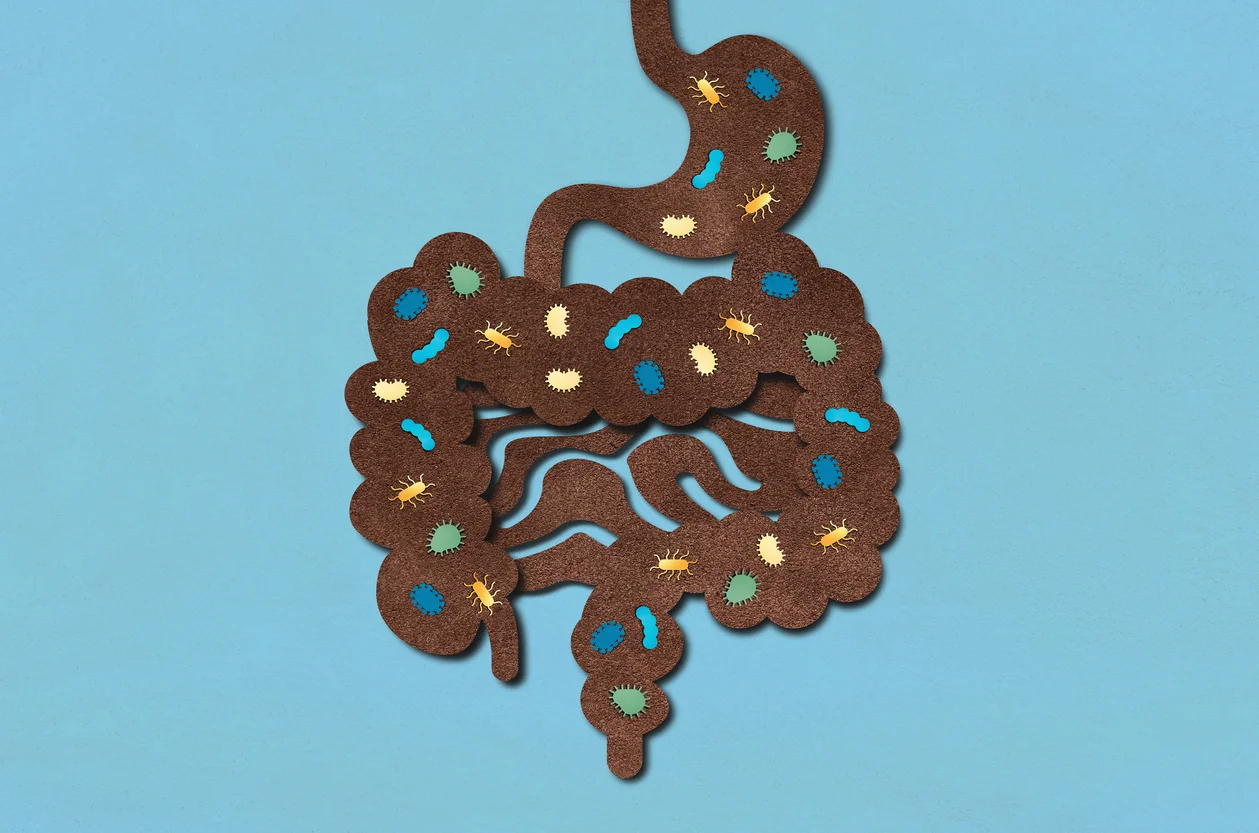Netflix’s documentary “Hack Your Health: The Secrets of the Gut” explores the influence of the gut microbiome on health. It discusses personalized nutrition, the gut as a “second brain,” and the impact of lifestyle choices. While well-crafted, it acknowledges ongoing research in understanding gut health’s implications for overall well-being, with conditions like diabetes and depression linked to gut health. Human research in this area is still evolving, with much more to uncover.
The Netflix series “Hack Your Health” features individuals like Maya, Daniell, Kimmie, and Kobi with various health challenges. They use an at-home gut-testing service called Floré, which claims to detect over 23,000 microbes to provide personalized gut health solutions for $299. Expert Tim Spector supports such tests to identify optimal diets based on gut microbiome analysis.
Dr. Giulia Enders dismisses gut microbiome tests as unnecessary, advocating for dietary improvements instead. Microbiome tests provide limited and potentially arbitrary information, with upselling of supplements being seen as marketing tactics.
Experts suggest focusing on overall diet quality, diversity, and plant-based foods for gut health, rather than relying on these tests. The tests’ claims of diagnosing ‘healthy’ bacteria levels are questioned by experts. Stool tests may offer limited clinical recommendations, emphasizing the need for sustainable dietary changes over costly tests. The impact of specific bacteria on weight loss remains uncertain, with obesity being influenced by various factors beyond gut health.
Hack Your Health: Investigating 6 Statements from Netflix
1. “We are born largely without a microbiome. They only colonize us after we are born. If a baby is born vaginally, it is exposed to the mother’s bacteria.”
The placenta protects the foetus from infections and microorganisms in the womb. Scientific research confirms that birth marks the initial exposure to microorganisms for a baby. Approximately 60% of a newborn’s microbiome is derived from the mother, with the remainder coming from the environment. Babies delivered vaginally acquire their microbes mainly from vaginal and intestinal secretions, a process absent in cesarean section births. However, breastfeeding can compensate by providing beneficial microbes through breast milk.
2. “Another person’s stool samples can improve your health.”
Faecal transplantation is a promising method for restoring a healthy microbiome and combating harmful bacteria. This procedure is mainly used to treat persistent Clostridioides difficile infections and should be performed only under medical supervision. The documentary shows a woman ingesting capsules containing stool from her partner and sibling, a risky practice that should be avoided. Donors can inadvertently transmit harmful bacteria along with beneficial ones, posing significant health risks.
3. “Tailor-made probiotics can improve health in a very targeted way. Most over-the-counter probiotics do not contain strains of bacteria found in the digestive tract.”
Probiotics, as defined by the FDA and WHO, are live microorganisms that provide health benefits when consumed in adequate amounts. They support the immune system, produce beneficial substances, interact with other gut bacteria, strengthen the intestinal barrier, and produce essential enzymes. Common probiotics include Lactobacillus, Bacillus, Bifidobacterium, and Saccharomyces, which do inhabit the digestive tract. However, selecting high-quality probiotics is essential, as many products on the market lack proven efficacy. Further research is needed to confirm individual therapeutic outcomes.
4. “Fermented foods are the original probiotics. They are full of different bacteria.”
The documentary showcases the age-old practice of fermenting vegetables in brine. Lactic acid bacteria (lactobacilli), naturally present on untreated vegetables, multiply during fermentation, producing vitamins, minerals, and antimicrobial substances. Consuming fermented foods enhances gut microbiome diversity and improves nutrient availability.
5. “The key is to eat as many different types of plants as possible, in every form. Food for the microbes!”
A diverse range of vegetables and fruits benefits gut health by enhancing bacterial diversity. A healthy gut microbiome consists of a wide variety of bacteria, while a lack of diversity can increase disease risk. Aim to include a colourful assortment of vegetables, fruits, nuts, seeds, legumes, whole grains, and probiotic foods like sauerkraut, natural yogurt, or kefir in your diet. Make dietary changes gradually to allow your gut bacteria to adapt.
6. “If you stop eating dietary fibre, the gut microbes will start eating the mucus lining as a backup food source.”
A fibre-rich diet supports bacteria that convert plant fibre into beneficial substances. A low-fibre diet, on the other hand, can reduce beneficial fibre-degrading bacteria and increase bacteria that may harm the intestinal mucosa, leading to inflammation. While the statement is not entirely incorrect, it oversimplifies the situation. Most bacteria decrease in numbers without fibre allowing potentially harmful bacteria to proliferate.
Review of Netflix’s “Hack Your Health” in brief:
Comparing “Hack Your Health” to other nutrition documentaries on Netflix, it stands out as a well-executed piece. The experts highlighted the ongoing importance of understanding the gut microbiome, which is a key takeaway.
They also recommended consuming a diverse array of whole, plant-based foods and aiming for 20-30 different plant varieties weekly to support a healthy gut microbiome. Additionally, incorporating fermented foods into your diet could be advantageous.
While the film doesn’t introduce any groundbreaking concepts, the emphasis on whole foods, plant-based diets, and sustainable eating habits aligns with long-standing recommendations from nutrition experts.

